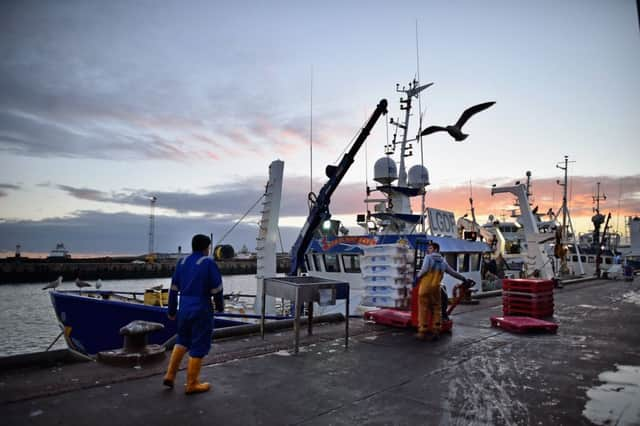Scottish fishermen receive cod and haddock quota boost


Fisheries minister George Eustice welcomed the deal as a “great result” for UK fishermen following European Union talks in Brussels.
North Sea cod and haddock quotas have been increased by 15 per cent and 47 per cent respectively on 2015 levels, the Department for Environment, Food and Rural Affairs said.
Advertisement
Hide AdAdvertisement
Hide AdBertie Armstrong, chief executive of the Scottish Fishermen’s Federation, said: “These quota rises for some of our most important stocks is good news for the industry and underlines the sustainable fishing practices of the Scottish fleet.
“There are, however, challenges for the year ahead, most notably the phased introduction of the discard ban. There is still great uncertainty over how this regime will work in practice and it is essential that there is a real degree of flexibility in its management.”
Rockall haddock and West of Scotland monkfish saw large increases in Total Allocated Catch (TAC), but West of Scotland herring was given no catch allocation for 2016.
Ian Duncan, Conservative fisheries spokesman in the European Parliament, said: “The decisions taken last night are, on the whole, very positive for the Scottish industry.
“Coming on the back of the EU-Norway talks last week, which saw quota increases for almost all of Scotland’s ‘staple’ fish stocks, the decision last night to increase the quotas for West of Scotland haddock, monkfish and hake, as well as Rockall haddock, is extremely good news.”
“However, I am concerned regarding the decision to give a zero TAC for West Coast herring next year. Our pelagic fishermen, already facing challenges in relation to access rights for mackerel, do not need another headache.”
Mike Park, chief executive of Scotland’s biggest fishing association, the SWFPA, welcomed the outcome, but warned it did not solve all of the industry’s problems.
He said: “It is through the commitment of Scottish fishermen to sustainability that the majority of stocks are in good health and the science and quota uplifts reflect this.
Advertisement
Hide AdAdvertisement
Hide Ad“But the European Commission, member state governments and fisheries regulators now need to show great understanding and flexibility as we enter the landing obligation for demersal [seabed]fisheries on 1 January.
“It will be very easy to undermine the good work of fishermen if anything other than a pragmatic approach is adopted. There remains a real risk that perfectly viable businesses will go under because measures designed to end dumping fish at sea take no account of the reality on the grounds.